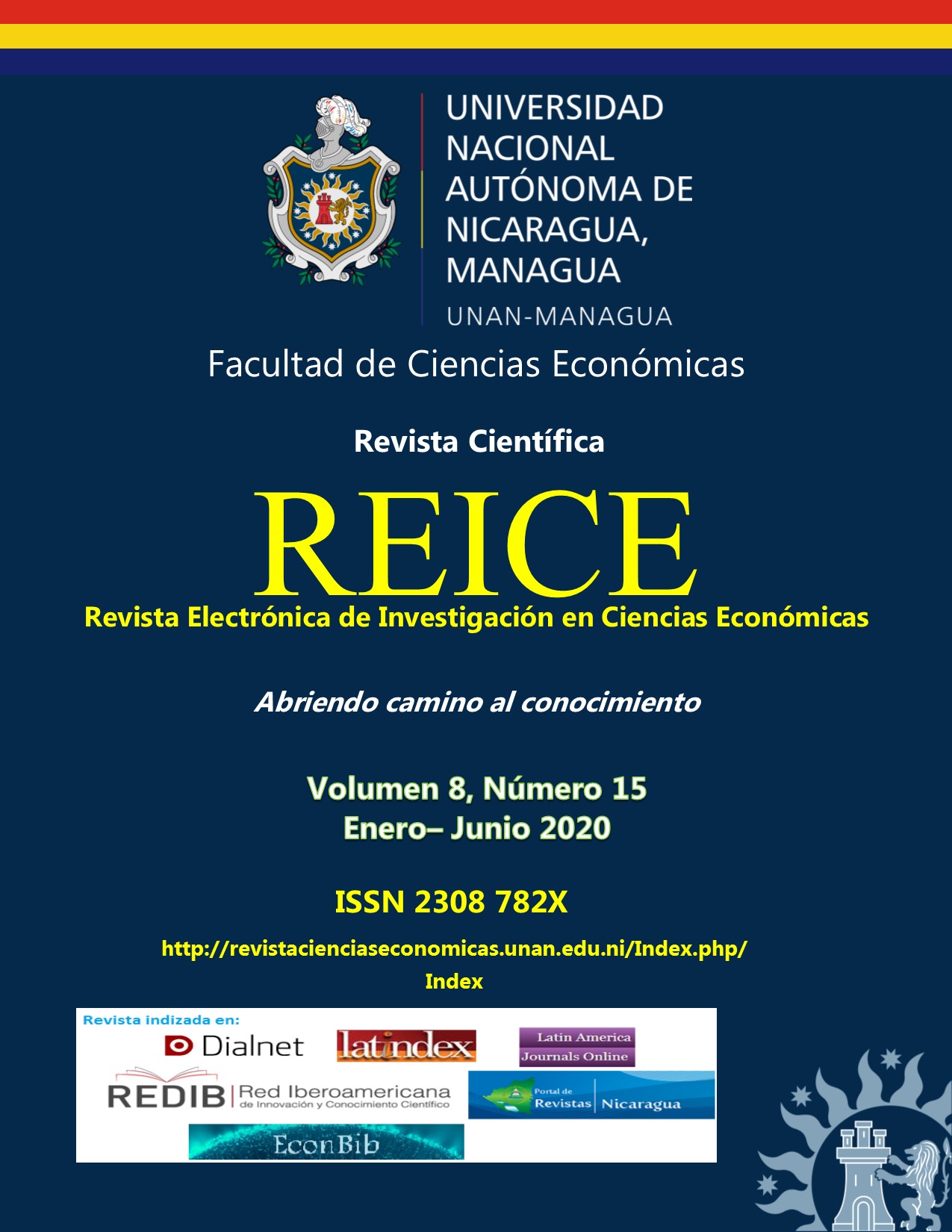Problems Of Statistical Accounting In Russian Price Index Determination
DOI:
https://doi.org/10.5377/reice.v8i15.9958Keywords:
inflación, importación, tipo de cambio, deflación, estadísticas, precios al consumidor, electrónica digital, transferencia de tipo de cambio.Abstract
The distortion of statistical data during determination of the price index of Russia can comprehensively affect the development of the entire economy through fiscal and monetary policy, since this indicator is the basic one. Using digital electronics as an example, the article considers the deviation of the dynamics in the consumer price index from the data of retailers. The paper draws attention to the transfer of value to the prices of imported products (exchange rate pass-through), which, given the current supply structure, justifies price increase in the real sector of the economy. They revealed the reason of the statistical sample deviation for the index calculation, which contributed to the formation of deflation in the state statistics within the digital electronics segment. During calculations, the statistical agency operates preliminary unpopular goods that make the sample unrepresentative, which leads to the indicator distortion. They analyzed the aspects of the possible impact of cheap goods on the market, qualitative changes in digital electronics products, and FSSS approaches to international recommendations. The characteristics of smartphones defined by FSSS and consumers' preferences are compared. They considered inflation dynamics in the digital electronics segment. They considered the structure of consumer spending on non-food products, regarded by FSSS to calculate the consumer price index. To solve the problem, they proposed to conduct more frequent sampling adjustments based on market research, as well as update and expand the specifications used.



